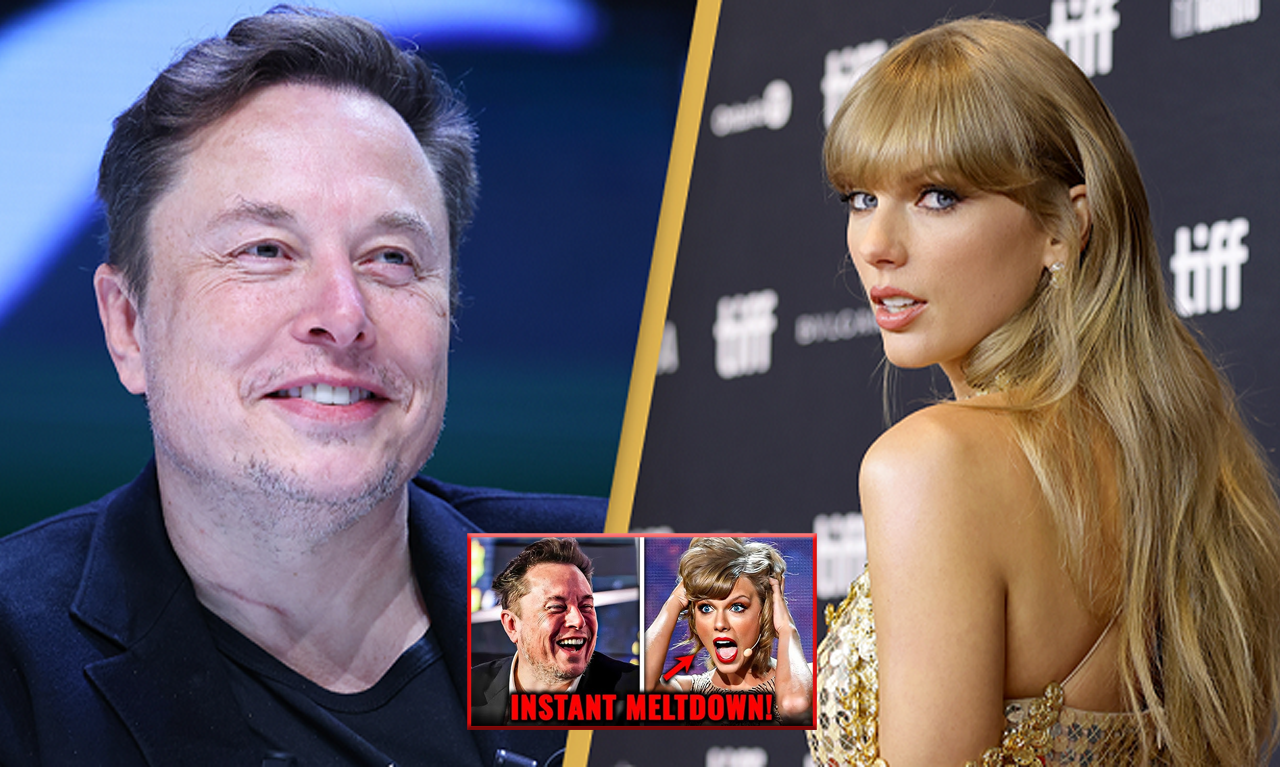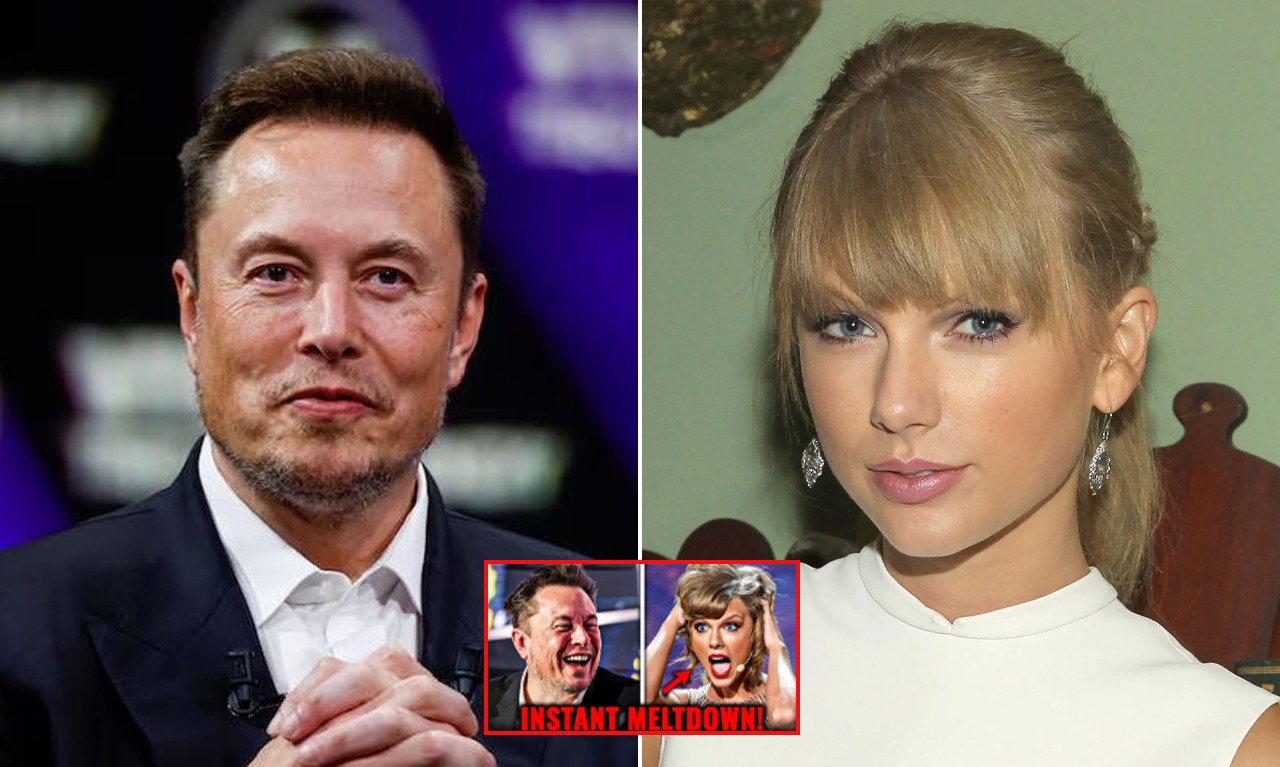In recent weeks, a buzz has circulated across social media, capturing the attention of millions: Elon Musk, the tech billionaire and owner of X (formerly Twitter), allegedly banned the account of pop superstar Taylor Swift. This rumor has not only unsettled Swift’s dedicated fanbase but also attracted widespread media attention, leading to heated discussions and speculations. With both Elon Musk and Taylor Swift being global icons, the story quickly became a subject of debate, raising questions about power dynamics in the social media space and the consequences for public figures when things go wrong online. But what’s the truth behind this explosive rumor? In this article, we’ll dive deep into the details surrounding this controversy and attempt to clarify the situation.
1. How the Rumor Began
The rumors regarding Taylor Swift’s alleged account ban started to surface on various social media platforms, particularly within fan forums dedicated to the singer. According to some users, Taylor Swift had suddenly faced difficulties when posting on X, and her follower count appeared to drop significantly in a very short period. As with most celebrity-related rumors, the story spread quickly. Taylor’s massive fanbase, which spans millions of people worldwide, quickly became involved, fueling speculation and uncertainty over whether Musk was behind the incident. The drama surrounding a pop icon like Taylor Swift, combined with the prominence of Elon Musk as the owner of one of the world’s largest social media platforms, made for a viral mix of intrigue and confusion.
The initial whispers on social media were soon amplified, and the speculation began to gain traction. Some users suggested that Swift’s apparent social media problems were due to a targeted action by Musk himself, possibly related to her outspoken views or political stances. Given Musk’s polarizing influence and the long-running tensions between celebrities and the platforms they use, this rumor naturally gained significant attention.
2. Reaction from the Online Community and Fans
Unsurprisingly, Taylor Swift’s fans, known for their passionate loyalty, were quick to react to the rumors. The hashtag #FreeTaylor began trending across Twitter (now X) and other platforms, with millions of posts calling for Musk to clarify what had happened. Fans flooded social media with messages demanding an explanation, and many voiced their concerns that a ban, if true, could have a serious impact on Swift’s career and public image.
As a top-tier pop star, Taylor Swift relies heavily on social media platforms to maintain her connection with her audience, promote her music, and share personal moments. Her presence on X is a crucial element of her brand, and any interruption could jeopardize her ability to reach her fans. Swift’s supporters rallied, claiming that if Musk were responsible for blocking her account, it would represent an abuse of power and an unfair attack on one of the world’s most influential artists.
Some critics speculated that Musk may have taken issue with Swift’s vocal political stances, particularly her support for certain American politicians or causes. Over the years, Swift has used her platform to advocate for social and political issues, including issues related to LGBTQ+ rights, voting rights, and her stance on the 2020 U.S. presidential election. Such public actions may have led some to speculate that Musk, known for his libertarian views and political commentary, might not have appreciated Swift’s outspoken nature. This fueled further suspicion and escalated the narrative of a “power struggle” between the tech mogul and the pop star.
.
3. Media Investigation and Fact-Checking Platforms
As the rumors began to gain momentum, several reputable media outlets and fact-checking platforms launched investigations to verify the claims. Leading organizations like Reuters and The Associated Press sought to confirm whether there was any truth behind the accusations.
According to a report from Reuters, there was no credible evidence to support the claims that Elon Musk had banned Taylor Swift’s account on X. After conducting a thorough investigation, the outlet confirmed that while Taylor Swift did experience some technical issues when attempting to post on the platform, these problems appeared to be a temporary glitch rather than any deliberate action on Musk’s part. The issue was resolved promptly, and as of the latest reports, Swift’s account remains active, with her follower count sitting at over 95 million—unchanged from previous figures.
The fact-checking process demonstrated the importance of relying on verified sources and evidence before drawing conclusions in the age of social media rumors. The news of a Swift account ban turned out to be a false alarm, but the way the rumor spread highlighted the immense power and influence of social media in shaping public perceptions.
4. Responses from Elon Musk and Taylor Swift
As of now, neither Elon Musk nor Taylor Swift has made any official comments regarding the rumors. Musk, who is known for his controversial and often unfiltered social media presence, has remained notably silent on the matter, which has led some to believe that his lack of response may be a deliberate strategy to avoid escalating the situation further. Many speculate that Musk’s silence is intentional, as addressing the rumor head-on might have inadvertently amplified it.
On the other hand, Taylor Swift has not acknowledged the issue publicly. She continues to focus on her music career and personal life, seemingly unfazed by the rumor mill. Swift’s decision to stay quiet in the face of such speculation may be her way of avoiding unnecessary drama or giving the rumor more attention than it deserves. Her silence could also be seen as a subtle message to her fans to not get distracted by online gossip and to focus on more important matters.
.
5. Impact on Social Network X and Online Culture
The incident has also brought to light some important questions regarding the role of social media platforms and their power to shape public narratives. As a platform now owned by Elon Musk, X (formerly Twitter) has already faced its share of controversies over content moderation, free speech, and the treatment of high-profile users. The rumor of banning Taylor Swift raises concerns about the extent of control social media moguls have over users, and whether their actions, or inaction, could be seen as biased or unfair.
In a digital era where social media platforms play such a critical role in shaping careers, influence, and even public discourse, any action—whether real or perceived—against a prominent figure can spark significant backlash. Fans of Taylor Swift, as well as many media commentators, have pointed to the potential dangers of centralizing power in the hands of a few individuals who control the flow of information.
Conclusion
In the end, the rumors that Elon Musk banned Taylor Swift’s account were unfounded, and a detailed investigation revealed that the issue was simply a technical glitch. However, this incident serves as a reminder of the power of social media rumors and the need for responsible fact-checking in an age where information spreads faster than ever before. While the truth behind the rumor is now clear, the impact it had on public discourse cannot be overlooked. It raised important questions about the balance of power in the digital age, the responsibility of platform owners, and the influence that fans and public figures can wield in shaping the narrative. In this case, the #FreeTaylor movement may have been fueled by misinformation, but it underscored the passion and devotion that Taylor Swift’s fans have for her—and the significance of social media in today’s celebrity culture.




